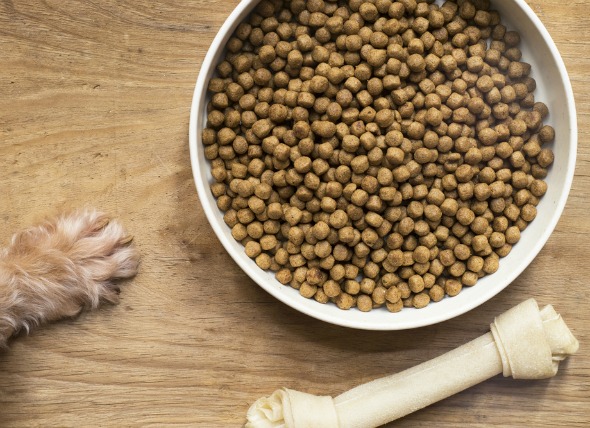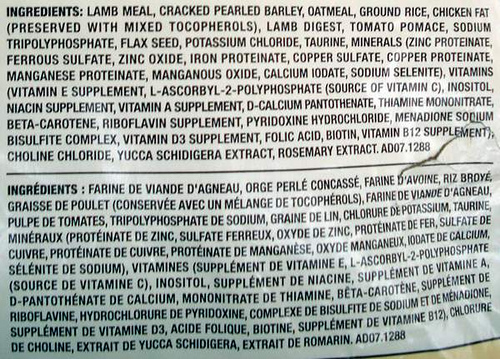

When you don’t know just what you’re looking for, it can seem like there are hundreds of pet food products on the shelves to choose from. You may be asking yourself: Does my pet have this problem, or will she have this problem if I don’t get this food to prevent it? But not all foods are equal, and there is no one food that will covers all the bases. So how to choose?
Many of the foods you are looking at are specialty products, or functional foods, which contain at least one ingredient that is designed to prevent or moderate a medical condition.
The most common functional formulas are geared toward:
Foods that are formulated to increase the health of the teeth are indicated for pets that have been diagnosed with a tendency to develop severe dental disease. This often is breed or age related, but may also be linked to diet. These foods are made to clean the teeth as the animal chews the food, and in some formulas, extra ingredients that are designed to prevent tarter buildup are added. These foods can be especially beneficial for pets that cannot sit for daily dental care (i.e., tooth brushings), or for pets that are already in the process of tooth decay.
If you are unable to clean your pet’s teeth on your own -- no matter the reason -- talk to your veterinarian about the possible benefits of a dental diet. If left unchecked, dental disease can eventually lead to tooth loss, gum disease, and other more serious conditions.
Each body is different, so what might be right for one dog or cat, may not be right for another. This is true even when the animals are related, or who have grown up in the same home together. What one animal relishes and can eat seemingly without consequence, another can have a severe physical reaction to. And it can be in response to the most benign ingredient. Allergic reactions are generally recognized by their symptoms: vomiting, diarrhea, and itchy skin are three of the most prominent.
Animals with food allergies often will benefit from a special diet that has been chosen specifically for the lack of the ingredient that has caused the allergic reaction. These foods typically are made from a source of protein that the animal has not had a chance to develop an allergy to, such as duck or venison. Likewise, the carbohydrate source is unlike the ingredients that are typically found in regular cat and dog foods. Oats and rice are two of the most common carbs used in pet foods that have been formulated for allergy prone pets. These special diets also contain omega-3 fatty acids, like those found in fish and flaxseed oils, for strengthening the immune system and organs.
You know your cat is self-cleaning, but do you know where all that hair goes? Hair cannot be digested, so it cannot go down, and that leaves only one other way out of the body: back up and through the mouth. Whether your cat is a light groomer or a persnickety excessive self-groomer, there will be hair in the mouth and in the stomach, and that hair will have to be pushed out. We call this gnarled up and pushed out hair a hairball, and most cat owners resign themselves to the occasional or frequent presence of them.
So, can food be designed to thwart the dread hairball? Yes and no. While hairball formulas do not completely eliminate the body’s reaction to hair by spitting it out the way it came in, these foods can help reduce the amount being spit out. Made with high fiber ingredients to glom onto the hair, and lubricating ingredients to help the indigestible material pass through the digestive tract, hairball formula foods may be the next best thing since the invention of baby carrots.
If your pet is having difficulty getting around, you will want to talk to your veterinarian about foods and supplements that are beneficial for joint health. The most common ingredients are glucosamine and chondroitin -- both of which work directly with the tendons and cartilage of the joints.
Additional joint health ingredients to look for include green-lipped mussel and MSM (methylsulfonylmethane). These ingredients are incorporated into kibble diets so that they can be ingested during meals, or they can be fed in smaller doses in treat form. These ingredients have been shown to be helpful in the rebuilding of damaged cartilage and in the reduction of joint inflammation in some animals.
Excessive levels of calcium, magnesium, phosphorus, and oxalate are known to lead to the development of crystals and stones in the urinary tract. For pets with these issues, a food that has been carefully measured, with these minerals and nutrients balanced in accordance with your pet’s needs -- no more -- can be helpful for the prevention of further urinary tract deterioration.
Image source: Tai McQueen / via Flickr
 Remedies for Arthritis in Dogs: Glucosamine, Chondroitin Sulfate, Steroids, and NSAIDs
By T.J. Dunn, Jr., DVM
Glucosamine and Chon
Remedies for Arthritis in Dogs: Glucosamine, Chondroitin Sulfate, Steroids, and NSAIDs
By T.J. Dunn, Jr., DVM
Glucosamine and Chon
 Ear Cropping: Is it Right for Your Dog?
By T. J. Dunn, Jr., DVM
If you a pr
Ear Cropping: Is it Right for Your Dog?
By T. J. Dunn, Jr., DVM
If you a pr
 Is it OK to Play Switcheroo with Your Pet Foods?
By Patricia Khuly, DVM
Originally published
Is it OK to Play Switcheroo with Your Pet Foods?
By Patricia Khuly, DVM
Originally published
 The Science of Pet Food Labels
Read Before You Buy – What is Your Pet Food Package
The Science of Pet Food Labels
Read Before You Buy – What is Your Pet Food Package
 8 Tips For Caring For Your Pet This Winter
Living in a Winter Wonderland?
Unless you&
8 Tips For Caring For Your Pet This Winter
Living in a Winter Wonderland?
Unless you&
Copyright © 2005-2016 Pet Information All Rights Reserved
Contact us: www162date@outlook.com